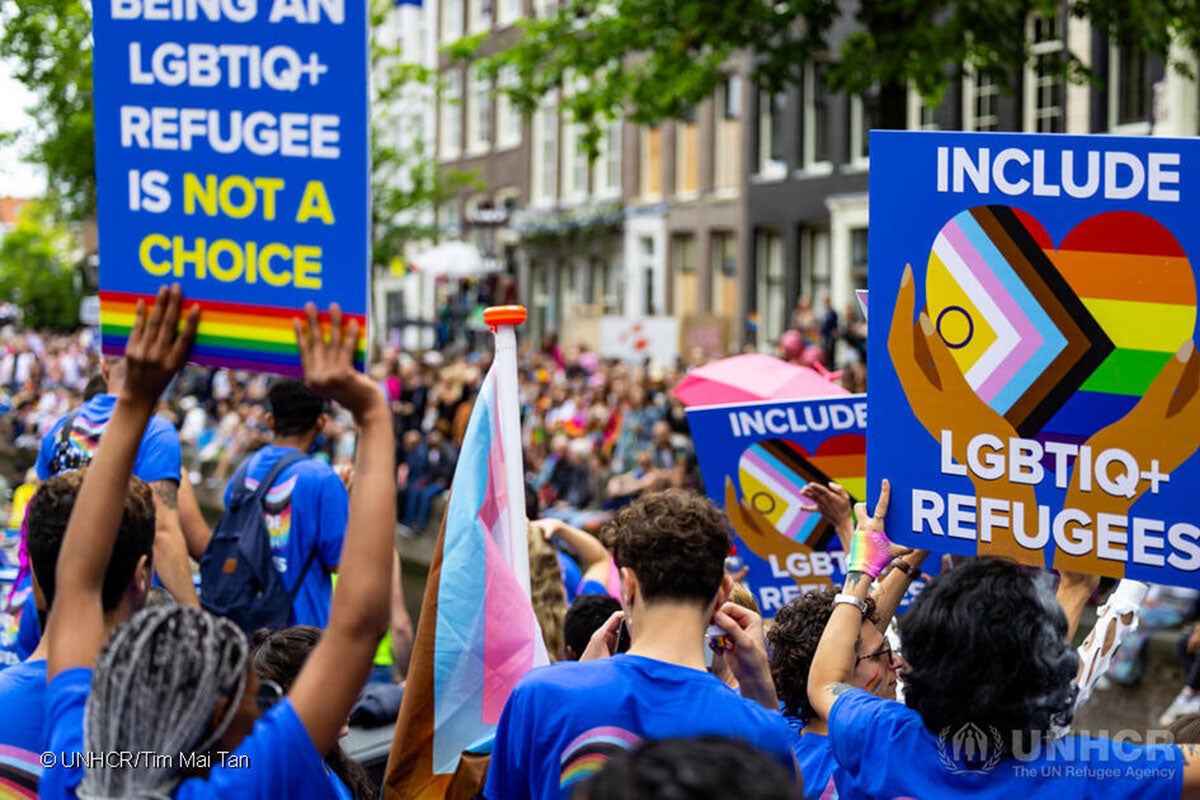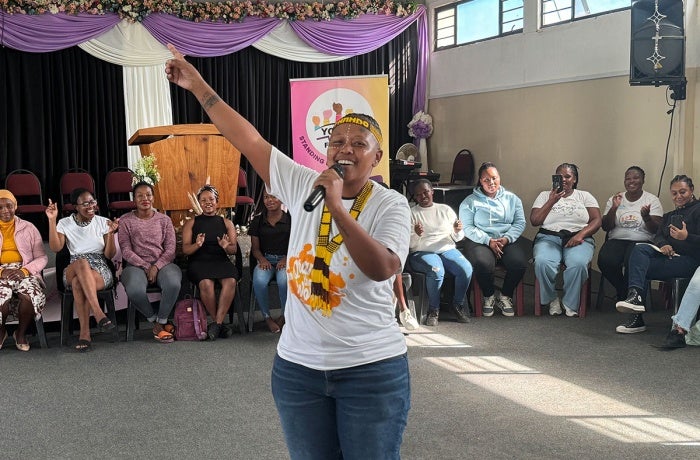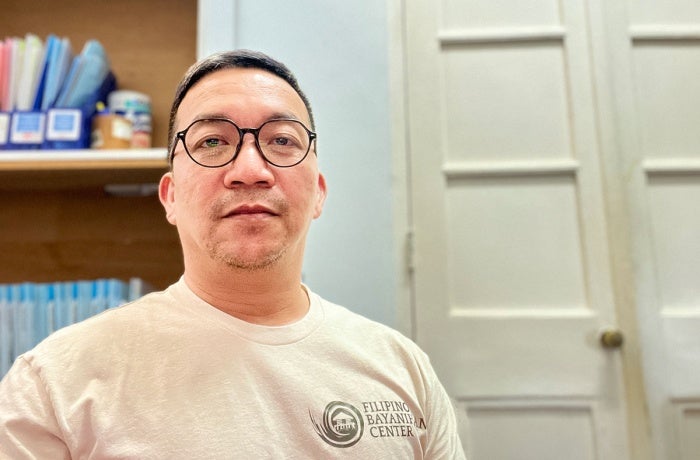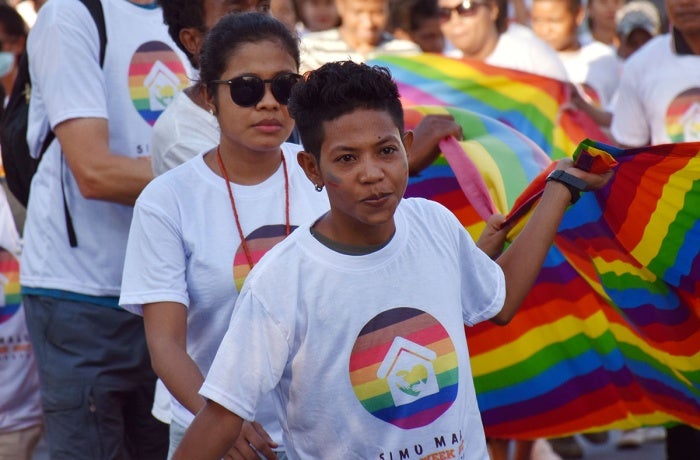In search of safety – LGBTIQ+ people on the move
It is estimated that only 37 countries grant asylum to persons experiencing discrimination based on their sexual orientation, gender identity, expression, or sex characteristics. LGBTIQ+ migrants face heightened risks at all stages of migration.
June marks LGBTIQ+ Pride Month in many places around the world. While recent decades have marked major advances for LGBTIQ+ people’s human rights, today an estimated 2 billion people live in places where consensual same-sex relations are criminalized, in some contexts, punishable by death[1]. Consensual same-sex relations between women are still criminalized in at least 42 countries around the world, and LGBTIQ+ women face alarming rates of violence. Organized efforts by state and non-state actors in different parts of the world are threatening human rights and restricting freedom of expression and association related to LGBTIQ+ issues. As the number of international migrants continues to increase, representing 3.6 per cent of the global population, LGBTIQ+ migrants are set to face increasingly complex, specific risks.

Despite the urgent need to provide refuge to those caught in dangerous and hostile contexts, including crises and conflicts, it is estimated that only 37 countries formally grant asylum to persons who have experienced persecution for reasons of their sexual orientation, gender identity, gender expression or sex characteristics (SOGIESC). Migration is often the last resort for many escaping discrimination and in search of a better life.
Here are five takeaways from UN Women’s latest research on the migration experiences of LGBTIQ+ people.
1. Chronic lack of data on LGBTIQ+ migrants
The chronic lack of comprehensive, comparable data on LGBTIQ+ migrants is partly due to the criminalization and persecution of diverse SOGIESC in many countries and the related risks associated with identifying as LGBTIQ+. This is exacerbated by the lack of political will, capacity, and investment in collecting, analysing and using data. Consequently, the experiences of LGBTIQ+ migrants – especially different groups of LGBTIQ+ people, including transgender, intersex, gender-diverse people, and women and girls of diverse SOGEISC – remain largely invisible and the human rights violations they face continue, often with impunity.
Another reason for the data gap is that citizens need to contribute to data in this context, including for example, accounts of human rights violations against LGBTIQ+ migrants at different stages of migration – at borders, in host communities and workplaces – however, migrants and bystanders may not feel safe to report such data.
2. Many LGBTIQ+ people are moving across borders in search of safety and security
Discrimination, including criminalization of same-sex relations, and other forms of persecution targeting people with diverse SOGIESC, often state-sponsored, are key reasons for LGBTIQ+ people leaving their countries of origin to seek better conditions abroad.
Restrictive laws have proliferated worldwide in recent years. In 2024, at least 60 Members States of the United Nations had laws that restricted the right to freedom of expression, and at least 59 States had laws that restricted, or could be used to restrict, the rights to freedom of peaceful assembly and association based on sexual orientation and gender identity.
Additionally, employment discrimination, denial of services, such as healthcare and housing, social marginalization, widespread abuse – including physical and sexual violence, family rejection, and homelessness, for example – are often contributing factors in people’s reasons for migrating.
3. LGBTIQ+ people face more risks and human rights violations at all stages of migration
LGBTIQ+ migrants face higher risks of significant physical and sexual violence at all stages of migration. The risks include unsafe shelters, limited or no access to adequate healthcare and other critical services, and discrimination by border agents, police, immigration officers and service providers. Traffickers, smugglers, as well as other migrants are often the main perpetrators of discrimination and abuse against LGBTIQ+ migrants.
Transgender, gender diverse and some intersex people face added challenges, especially at borders and checkpoints, where their official legal documentation does not accurately match their gender identity or gender expression. This can lead to further discrimination and abuse, particularly by officials with authority and individuals put in place to serve and protect migrants.
4. LGBTIQ+ migrants, especially transgender women, face significant barriers to the full enjoyment of rights in countries of destination
LGBTIQ+ migrants face complex barriers in accessing employment, social protection, housing, healthcare and other services when they arrive in the countries of destination. Some LGBTIQ+ people migrate to countries with more accepting political and social environments and may feel a newfound sense of ease. But for many LGBTIQ+ migrants around the world, persistent racism and xenophobia coupled with discrimination based on their migration status and diverse SOGIESC can limit or prevent their access to jobs and services.
Transgender women face especially high risks of violence and discrimination. This includes in detention centres, especially when they are detained in cisgender male spaces, or when safe housing and access to healthcare and other critical services is denied.
5. Legal reforms and services are urgently needed
Given the growing number of LGBTIQ+ people moving in search of safety and security, all states should promote and uphold the principle that persecution of people based on their SOGIESC is valid grounds for claiming asylum.
Addressing discrimination and human rights violations against LGBTIQ+ migrants requires reforms on multiple fronts, including at a minimum: decriminalization of same sex relations and diverse sexual orientations and gender expressions, the provision or expansion of appropriate services for LGBTIQ+ migrants, such as adequate housing, healthcare, including gender-affirming healthcare and life-sustaining human immunodeficiency virus (HIV) treatment, as well as justice, social protection and essential services for survivors of violence. Policies that provide or expand alternatives to detention for LGBTIQ+ migrants, especially transgender women and gender-diverse people, can significantly reduce their risk of abuse and discrimination.
Five actions to protect and guarantee the rights and freedoms of LGBTIQ+ people at all stages of migration
- Call upon governments to strengthen the protection of LGBTIQ+ migrants by granting asylum or providing access to humanitarian visas to those fearing persecution based on their SOGIESC.
- Advocate for comprehensive migration reforms that include pathways to citizenship for LGBTIQ+ migrants and their families, including by ending discrimination against same-sex couples.
- Urge decision-makers to apply the principle of non-refoulement by guaranteeing that no one is returned to a country where they would face torture, cruel, inhuman or degrading treatment or punishment and other irreparable harm, including on the basis of their SOGIESC.
- Join and support prevention and awareness-raising campaigns aimed at preventing violence against LGBTIQ+ people and to increase tolerance and acceptance of them.
- Call upon local, state and national governments to expand LGBTIQ+ migrants’ access to community services for healthcare, food, financial assistance, legal services, housing, education, training and information.
[1] 62 UN member States criminalise consensual same-sex relations: 60 criminalise de jure (laws criminalising consensual same-sex sexual acts); 2 criminalise de facto (in practice, relying on other laws). The death penalty is the legally prescribed penalty for consensual same-sex sexual acts in 7 UN member States, and in an additional 5 without full legal certainty. (ILGA World, 2024. ‘Laws On Us’.)








